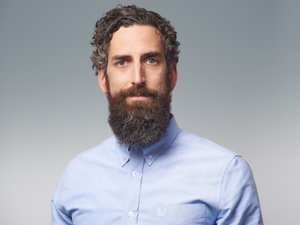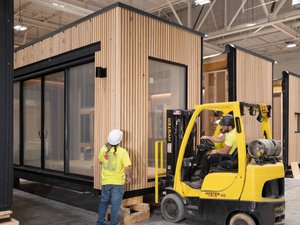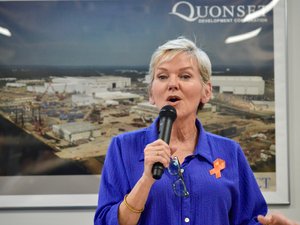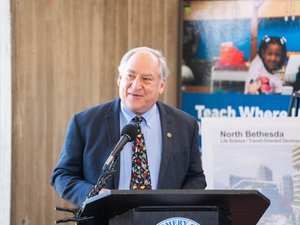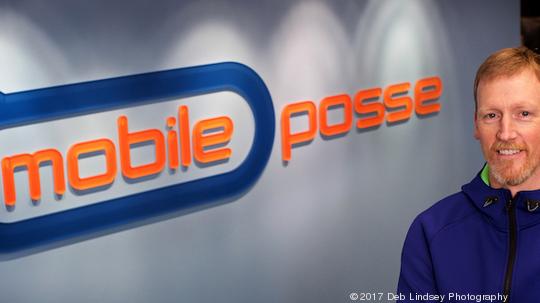
Jon Jackson founded his mobile software company Mobile Posse back in 2005, and before then, you could find him doing various stints at D.C. tech stalwart AOL. So when you ask him about the state of the D.C. tech ecosystem, he has a lot of thoughts.
To be exact, he thinks that Washington, D.C. has the potential to be the "Silicon Valley of the East." Now, he recognizes that it's a stretch, but he's seen a lot in the past few decades. He went to school at George Mason University, and he's been a part of the local innovation scene since the early 1990s. He started Mobile Posse, which works with clients to help them best utilize a mobile device's lock screen push notifications, back when he said a server easily costed $10,000 a month.
DC Inno caught up with Jackson to find out what exactly he means when he says "Silicon Valley of the East" and how his company is working to make that dream a reality.
DC Inno: What is it about the D.C. ecosystem that could make it the "Silicon Valley of the East"?
Jon Jackson: We certainly have to aim high, and Silicon Valley is our benchmark. Improving the ecosystem here is going to be nothing but good for A) the economy and B) our industry, in general. Can it really become the Silicon Valley of the East? That might be a bit of a stretch—but if you don't aim for something then you never get there.
Can it really become the Silicon Valley of the East? That might be a bit of a stretch—but if you don't aim for something then you never get there.
D.C. has a lot going for it: We have more advanced degrees than anyone else in the country, we have more IT workers than anyone but San Francisco. There's areas where we're certainly strong — infrastructure for telecom to think about things like data science.
There's certainly pockets and areas where we do really well, and I think there's a number of things that we can do as an organization and a community to facilitate that growth. Some of that we started doing, and some of it, I think frankly we've been doing for a while, but either A) they need to be re-energized or B) they need to be re-worked for a little bit to get people excited for them again.
One of the biggest challenges I think D.C. has going for it is that we have these three municipalities. We have D.C. and then we have the Northern Virginia area and then we have Montgomery County and the biotech scene up there. I think sometimes that's a little bit of a challenge, and sometimes we think of ourselves as competition within those three, which really isn't the competition. Anything we can do to improve that would help.
What are some of the things that have changed in your time in the D.C. tech ecosystem?
If you do look around, I think one of the things that has changed since I started Mobile Posse is that we don't have as many institutional investors in the D.C. area as we had even 10 years ago, which I think is problematic. Now some come from other areas and do investments here, but it's going to be hard for a lot of (early-stage) companies to get escape velocity if they don't have capital.
On the plus side, it has become a lot cheaper to start a business. I remember when I left AOL and started a company with a friend of mine, this was probably in 2000: just to get a presence on the web and get some servers cost $10,000 a month, and now you can get that same capability and even better from Amazon's cloud service for $50 a month.
What are some of the programs or things your company is involved in to help bolster and support the D.C. tech community?
We're working now with the University of Maryland and taking a look at Howard University to see if we can get some sort of internship program started with them. George Mason University is super close and was a little bit easier to get connected there, but we would like to do the same sorts of things with other institutions.
We've signed up for the 1 percent pledge, and what that means is that we're basically facilitating and setting up different events during the work day where our employees go and give back to the community. The 1 percent ends up being about 1-2 business days a year. That's another way that we're trying to drive engagement with the community that we're in.
I feel like there's a lot of talk about bridging together the Greater Washington region, but they're still in the early stages. What's your take on some of these initiatives?
Certainly if you're in Silicon Valley, and you have a good idea, and you've thought through it, then you're going to get funded, but I don't think that's necessarily true in other places. So, I think bringing that investment our farther [than the Bay Area] is definitely warranted.
Leaders of industry are starting to find their voices to improve the environment that we live within and create change.
I think that CEOs have become aware that they can affect change in different ways, and I don't know if 10 years ago you would've seen people—especially CEOs—speaking out against certain things. It started with companies making pledges, like the 1 percent pledge or diversity or green energy. It kinda started there a few years ago, but I think that now I see CEOs saying things that, for sure even 2-3 years ago, they wouldn't have even said.
Leaders of industry are starting to find their voices to improve the environment that we live within and create change.
How do we differ from other tech ecosystems attempting to be the so-called "Silicon Valley of the East"?
If you look at Austin, for example, 10-15 years ago, I don't think people would've thought of Austin as a hub for tech startups. New York for a lesser extent — I think there's always been startups there, but now there's an ecosystem for them here. How did those municipalities go from being whatever they were centered on before to being more inclusive?
In Austin's case, a lot of that probably had to do with SXSW, some of it had to do with the proximity of a really good school and the lower cost of living. But I think there are some beacons that we can look at and think "How did they do it, and how can we do that?"
What are you seeing in New York or Austin that you think D.C. could replicate?
From the D.C. tech scene, I do know that we don't tend to celebrate too much the organizations that are here. I think of companies that have exited, and I think 'Wow, that sold for a lot of money and no one is really talking about it here.' That wouldn't happen in Silicon Valley. People would talk about it.
I don't know if we have muscle memory on that particular front, and I don't know exactly why that is, but it certainly feels that way to me.
Image courtesy of Mobile Posse

